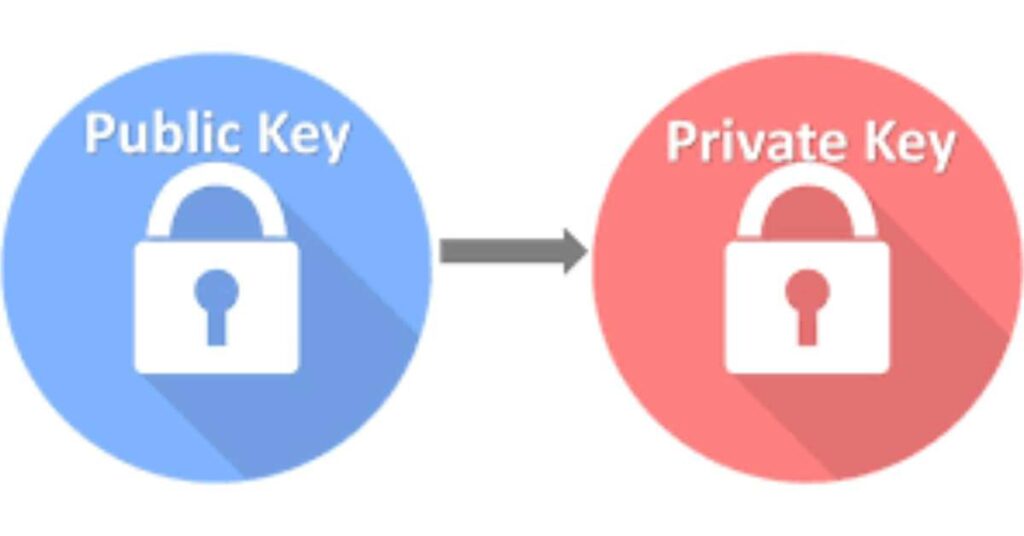Are you ready to delve into the world of cryptocurrency wallets? Get ready to discover the keys to securely storing and managing your digital assets. In this comprehensive guide, we’ll walk you through everything you need to know about cryptocurrency wallets, from what they are to how to choose the right one for your needs. So, let’s embark on this exciting journey together!
Contents
What Exactly is a Cryptocurrency Wallet?
Think of a cryptocurrency wallet as your digital bank account. It’s a software program that stores your public and private keys, allowing you to send, receive, and manage your digital currencies. Unlike traditional wallets, which hold physical cash and cards, cryptocurrency wallets store your digital assets securely on the blockchain.
Understanding Public and Private Keys
Before we dive deeper, let’s clarify what public and private keys are. Your public key serves as your wallet address, similar to your bank account number. It’s what you share with others to receive funds. On the other hand, your private key is like your PIN or password, giving you access to your funds. It’s crucial to keep your private key safe and never share it with anyone.

Types of Cryptocurrency Wallets
There are several types of cryptocurrency wallets, each offering different features and levels of security:
- Hardware Wallets: These physical devices store your private keys offline, providing the highest level of security. They are immune to online hacking attacks and are ideal for long-term storage of large amounts of cryptocurrency.
- Software Wallets: These wallets are applications or programs that you can download and install on your computer or mobile device. They are convenient for everyday transactions but may be more susceptible to hacking if not properly secured.
- Web Wallets: Web wallets are hosted online and can be accessed from any device with an internet connection. While they are convenient, they are considered less secure than hardware wallets as they are vulnerable to online attacks.
- Paper Wallets: A paper wallet involves printing your public and private keys onto a piece of paper. It’s a highly secure method of storing cryptocurrency, as it’s not connected to the internet. However, it’s essential to keep the physical paper safe from damage or loss.
Choosing the Right Wallet for You
With so many options available, how do you choose the right cryptocurrency wallet for your needs? Consider the following factors:
- Security: Security should be your top priority when selecting a wallet. Look for wallets that offer features such as two-factor authentication, encryption, and backup options.
- User-Friendliness: Choose a wallet that is easy to use and navigate, especially if you’re new to cryptocurrency. A user-friendly interface will make it simpler to manage your funds and perform transactions.
- Supported Currencies: Make sure the wallet supports the cryptocurrencies you intend to store or trade. Some wallets may only support popular currencies like Bitcoin and Ethereum, while others offer a broader range of options.
- Backup and Recovery Options: Consider wallets that offer backup and recovery options in case you lose access to your device or forget your password. This ensures that you can still access your funds even in unforeseen circumstances.
- Reputation and Reviews: Do your research and read reviews from other users to gauge the reputation and reliability of the wallet provider. Opt for wallets with a proven track record of security and customer satisfaction.
Securing Your Cryptocurrency Wallet
Now that you’ve chosen your cryptocurrency wallet, it’s essential to take steps to secure it properly:
- Set Up Two-Factor Authentication (2FA): Enable two-factor authentication to add an extra layer of security to your wallet. This typically involves entering a code sent to your mobile device or email whenever you log in or perform transactions.
- Use Strong Passwords: Create a strong, unique password for your wallet that includes a combination of letters, numbers, and special characters. Avoid using easily guessable passwords or reusing passwords from other accounts.
- Keep Your Private Key Safe: Never share your private key with anyone, and store it in a secure location offline. Consider using a hardware wallet for added protection against online threats.
- Regularly Update Your Wallet Software: Keep your wallet software up to date with the latest security patches and updates. This helps protect against potential vulnerabilities and exploits.
- Backup Your Wallet: Make regular backups of your wallet’s private keys and store them in multiple secure locations. This ensures that you can still access your funds if your device is lost, stolen, or damaged.

Conclusion
Congratulations! You’ve unlocked the power of cryptocurrency wallets and are ready to take control of your digital assets with confidence. By understanding the different types of wallets, choosing the right one for your needs, and implementing proper security measures, you can safeguard your funds and navigate the world of cryptocurrency with ease. So, go ahead, explore, and embrace the future of finance with your newfound knowledge and empowerment. Happy hodling!